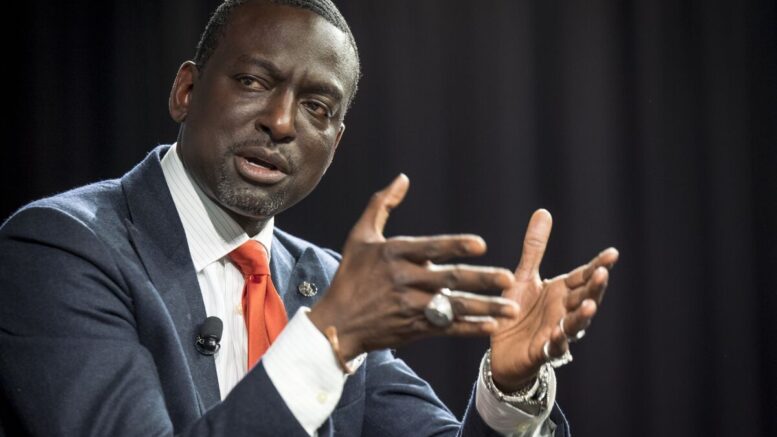Introduction:
In a landmark case that sent shockwaves through the nation, Yusef Salaam, along with four other young men, was wrongfully convicted of a heinous crime that rocked New York City in 1989. The case, widely known as the Central Park jogger case, captured the attention of the public and media alike, leading to a hasty rush to judgment. However, in a remarkable turn of events, Yusef Salaam’s story ultimately became a symbol of resilience, hope, and the pursuit of justice. This article explores Yusef Salaam’s journey from wrongful conviction to exoneration and his remarkable resilience in the face of adversity.
A Dark Chapter in History:
The Central Park jogger case involved the brutal assault and rape of a female jogger in New York City’s Central Park. Yusef Salaam, along with Antron McCray, Kevin Richardson, Raymond Santana, and Korey Wise, who were all teenagers at the time, were convicted of the crime based on coerced confessions obtained through aggressive police interrogations. Despite a lack of physical evidence connecting them to the crime, the five young men were unfairly labeled as the “Central Park Five.”
Years of Wrongful Imprisonment:
Yusef Salaam and his co-defendants were sentenced to prison, serving between six and thirteen years for a crime they did not commit. While behind bars, Salaam maintained his innocence, refusing to let his spirit be broken by the injustice inflicted upon him. He sought solace in education, acquiring his high school diploma and pursuing higher education while incarcerated. Salaam’s unwavering determination to prove his innocence and bring attention to the flawed criminal justice system that failed him and his co-defendants served as an inspiration to many.
The Road to Redemption:
In 2002, a shocking twist of fate occurred when Matias Reyes, a convicted murderer and serial rapist, came forward and confessed to being the sole perpetrator of the Central Park jogger attack. DNA evidence confirmed his guilt and completely exonerated Yusef Salaam and the other members of the Central Park Five. The revelation shattered the prosecution’s case and shed light on the systemic flaws that had led to the wrongful convictions.
A Voice for Change:
Following his release from prison, Yusef Salaam dedicated his life to advocacy and raising awareness about issues surrounding the criminal justice system. He became a powerful voice against wrongful convictions, racial profiling, and police misconduct. Salaam’s harrowing experience and subsequent exoneration allowed him to educate others about the injustices that occur within the legal system and the urgent need for reform.
Resilience and Redemption:
Yusef Salaam’s story represents more than just the triumph of justice. It symbolizes the indomitable spirit of an individual who, despite enduring unimaginable injustice, never lost faith in his innocence or the power of the truth. Salaam’s resilience serves as a reminder that, even in the face of adversity, one can overcome and emerge stronger on the other side.
Conclusion:
Yusef Salaam’s wrongful conviction and subsequent exoneration exposed glaring flaws in the criminal justice system and highlighted the urgent need for reform. His story serves as a powerful testament to the resilience of the human spirit and the unwavering pursuit of justice. Salaam’s advocacy work continues to shed light on the systemic issues that plague our society, encouraging us all to challenge injustice and fight for a fairer and more equitable future.
It is with that in mind that the Ministerial Alliance of North Amityville and Vicinity salutes Brother Yusef Salaam on his recent election to the City Council of New York City. It seems to be a serious turn of events that the same man who called for his death in the 1980’s is facing criminal charges in that same city today.

Be the first to comment on "MANA Salutes Yusef Salaam’s Election to the NYC City Council"